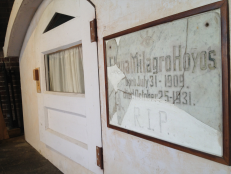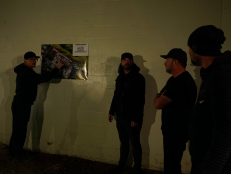National Parks in Arizona
See what adventures await in the Grand Canyon State.
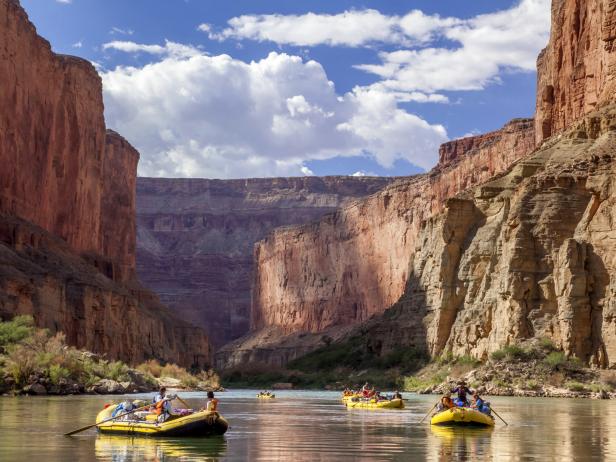
John & Lisa Merrill/Getty Images
For history buffs, outdoorsmen and view junkies alike, The Grand Canyon State is the ultimate destination for adventure. Its vast prairies, wind and water-carved canyons and fertile volcanic plains have supported human habitation for thousands of years, spawning thriving native civilizations, pioneer settlements and the birth of the American Southwest. Today, the National Park Service protects and preserves many of these breathtaking landscapes, ancient ruins and historical sites for all to enjoy.
Canyon de Chelly
National Monument, Chinle, AZ
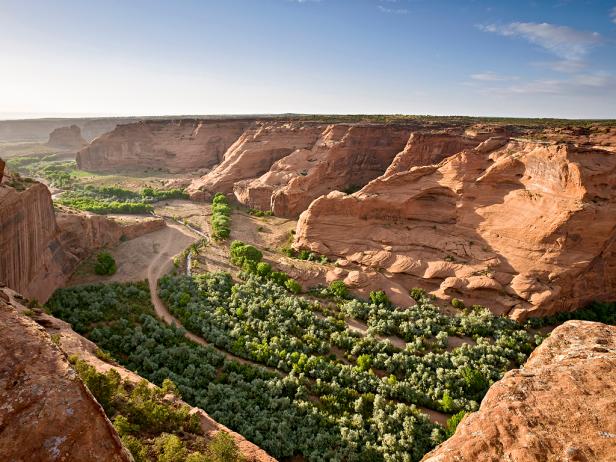
Thinkstock
First inhabited by the Puebloans, then the Hopi and, finally, the Navajo, Canyon de Chelly (known to the Navajo as Tseyi), has sustained human occupation for over 4,000 years. Today, 40 Navajo families still live within the 84,000-acre National Monument, working with The National Park Service to maintain the area's important archaeological resources and stunning natural landscape. Explore this fertile canyon >>
Casa Grande Ruins
National Monument, Coolidge, AZ
Love a good mystery? The Casa Grande Ruins and what purpose the multi-structure compound originally served has perplexed visitors and archaeologists for hundreds of years. Learn more about this mysterious ancient complex >>
Chiricahua
National Monument, Willcox, AZ
Millions of years of violent volcanic activity along the Chiricahua Mountain Range resulted in the breathtaking "Wonderland of Rocks" — an expansive landscape of columns, spires and balanced rocks that makes up a large portion of the Chiricahua National Monument. Experience the area's scenic, natural beauty on an eight-mile paved drive or by traversing the 17 miles of day-use hiking trails. Plan your trip to Chiricahua >>
Coronado
National Memorial, Hereford, AZ
Although the gold-seeking Francisco Vásquez de Coronado Expedition of 1540-1542 was deemed a failure at the time, it left a lasting impact on the area that was to become the southwestern United States and paved the way for future explorers and settlers of the region. Enjoy panoramic views of the U.S.-Mexico border as you embark on your own exploration of the San Pedro River Valley and the route believed to have been taken by the famed Spanish explorer. Learn more about Coronado National Memorial >>
Fort Bowie
National Historic Site, Willcox, AZ
Fort Bowie was an outpost of the United States Army from 1862 to 1894 and served as a base of military operations during the bitter U.S.-Apache conflicts of the 19th century. Get to know Fort Bowie >>
Glen Canyon
National Recreation Area, AZ, UT
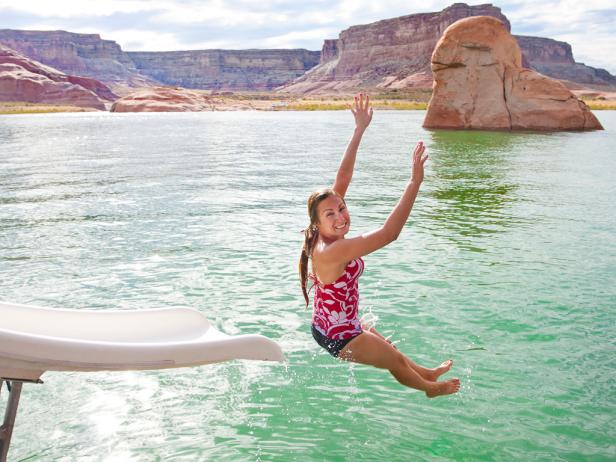
Thinkstock
With over 1.25 million acres to explore, Glen Canyon is your one-stop-shop for all things outdoor fun. Swim or boat in the blue waters of Lake Powell, take in the views of gorgeous wind and water-carved canyons and much, much more! See what all Glen Canyon has to offer >>
Grand Canyon
National Park, Grand Canyon, AZ
Image Bank / Getty Images
This mile-deep canyon is one of the most visited parks in the U.S. — second only to The Great Smoky Mountains National Park — and spans a breathtaking 1.2 million acres from South to North Rim. Budget two full days to see and experience all the incredible views and historical sites offered by this ancient, expansive landscape. Plan your bucket list trip to The Grand Canyon >>
Explore the Grand Canyon With Travel Channel
Hohokam Pima
National Monument, Coolidge, AZ
Located on the Gila River Indian Reservation, this national monument commemorates and preserves the remnants of the ancient Hohokam village of Snaketown, an "urban" community that flourished from 300 A.D. to 1200 A.D. Unfortunately, the monument is not open to the public and no passport stamps or park literature are available, but excavated artifacts and more information can be found at The Arizona State Museum in Tucson. Learn about Snaketown's history here >>
Hubbell Trading Post
National Historic Site, Ganado, AZ
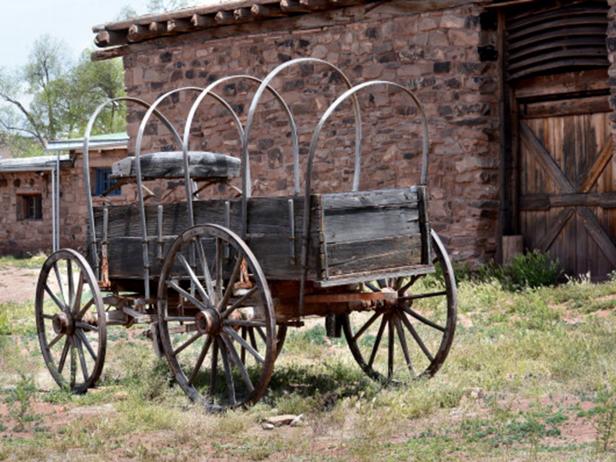
Robert Alexander
Step back in time as you enter the oldest, continuously-run trading post on the Navajo Reservation. Once here, you can purchase handwoven rugs, Native American art, groceries and more just as patrons have done for over 150 years. Browse the shelves at Hubbell's >>
Juan Bautista de Anza
National Historic Trail, AZ, CA
From 1775 to 1776, thirty young families under the direction of New-Spanish explorer Juan Bautista de Anza travelled from Mission Tumacácori in present-day Arizona to establish the first Spanish colony and presidio (military fort) in San Francisco Bay. Follow the footsteps of these Western pioneers >>
Lake Mead
National Recreation Area, the Mojave Desert, AZ, NV
Formed by the Hoover Dam, Lake Mead is the largest reservoir by volume in the United States when full and spans 247 surface miles from Arizona to Nevada. The lake offers year-round recreational opportunities including boating and fishing and boasts a rich assortment of striking natural features including colorful soils, deep canyons, diverse ecosystems and more. Visit Lake Mead National Recreation Area >>
Montezuma Castle
National Monument, Camp Verde, AZ
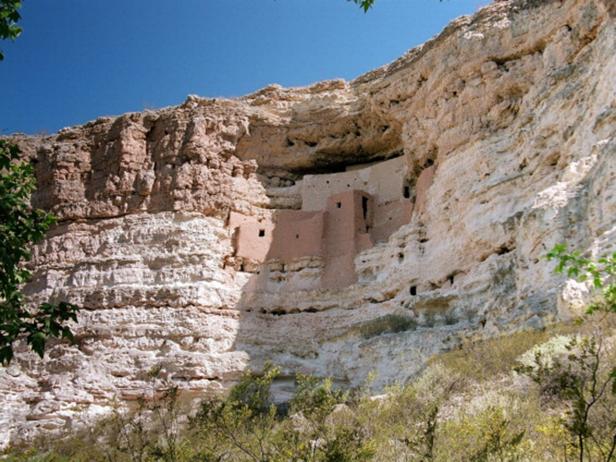
MyLoupe
High rise apartment complexes are a thing of the past — literally. Occupied by the Sinagua people from 1100 to 1450 A.D., this 900-year-old cliff dwelling stands five stories high and is comprised of 20 rooms. Learn more about this well-preserved prehistoric dwelling >>
Navajo
National Monument, Black Mesa, AZ
Take guided tours of Betatakin and Keet Seel — two ancient Puebloan villages built into sandstone canyon alcoves — as you learn about the history and culture of the Ancestral Puebloan people. But be sure to book in advance! Only 50 guests per day are permitted in Betatakin while Keet Seel allows only 20. See how the ancient Puebloans lived >>
Old Spanish
National Historic Trail, AZ, CA, CO, NV, NM, UT
From about 1830 until the mid-1850s, items such as locally-produced New Mexico serapes and California-bred horses were transported by way of an arduous, 700-mile trail that traversed the mountains, deserts and canyons between Santa Fe and Los Angeles. Learn more about this historic trade route >>
Organ Pipe Cactus
National Monument, Ajo, AZ
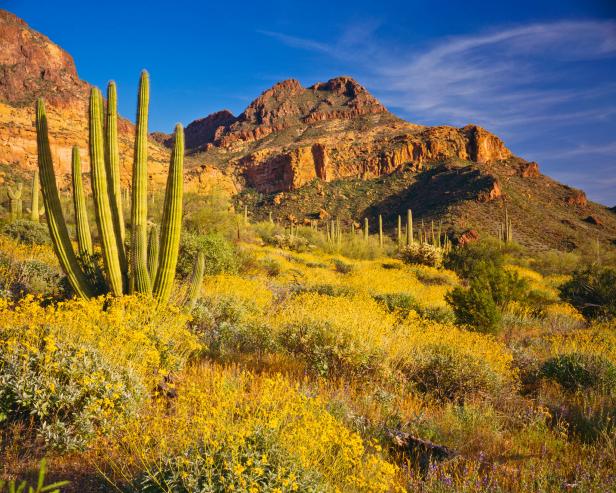
Ron and Patty Thomas
Named for, you guessed it, the rare Organ Pipe Cactus that grows wild in this region of the Sonoran Desert, Organ Pipe Cactus National Monument is also designated a UNESCO biosphere reserve, allowing its diverse ecosystems to flourish virtually untouched. Take a trip to this desert wilderness >>
Parashant
Grand Canyon-Parashant National Monument, Northern Arizona, AZ
This vast, rugged park, located on the western edge of the Grand Canyon National Park, is adorned with the scars of prehistoric eruptions, earthquakes and flowing basalt. The landscape is best suited for well-equipped, experienced hikers and explorers as it has no paved roads and is largely undeveloped. Explore the true wild west >>
Petrified Forest
National Park, Petrified Forest National Park, AZ
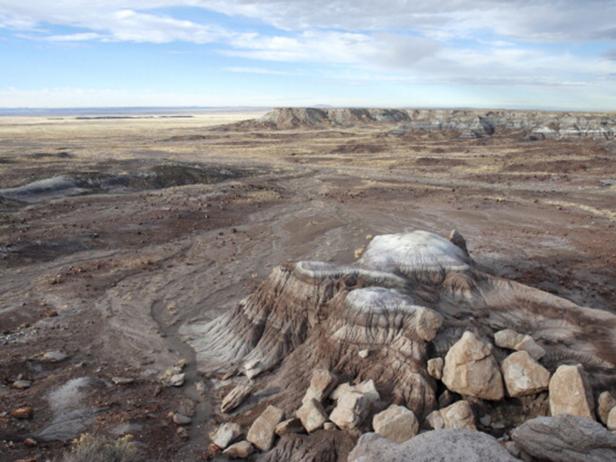
BSIP
Strewn with crystallized logs and colorful badlands, The Petrified Forest is an archaeological and historical gem. New hiking trails and interesting sites are being discovered each year, making this fascinating park a destination you'll want to visit again and again. See what awaits you at Petrified Forest National Park >>
Pipe Spring
National Monument, Fredonia, AZ
This ancient spring, located along the Armijo Route of the Old Spanish Trail, has provided centuries of sustenance and shelter to Ancestral Puebloans and Kaibab Paiute Indians, Mormon pioneers and European explorers. Explore the life-giving waters of Pipe Spring >>
Saguaro
National Park, Tucson, AZ

Anne Frigon
When you think of a cactus, you likely picture the tall, spiny Saguaro Cactus that grows abundantly throughout the Sonoran Desert in southern Arizona and northeast Mexico. But did you know that these majestic plants can live for over 150 years and grow to be over 70 feet tall? Learn more about this symbol of the Southwest >>
Sunset Crater Volcano
National Monument, Flagstaff, AZ
Nine-hundred years ago, the earth split and lava spewed, forming the 340-meter-high cone we know as the beautiful Sunset Crater Volcano. Today, the once-devastated landscape is now a thriving, colorful sanctuary for flora, fauna, wildlife and exploration. Take a closer look at this gorgeous volcanic landscape >>
Tonto
National Monument, Roosevelt, AZ
Tonto National Monument preserves and protects two cliff dwellings built and occupied by the Salado people around 700 years ago. Known for their fine craftsmanship, the Salado left behind a wealth of archaeological artifacts that tell the interesting story of their life in the Salt River Valley. Get to know these ancient peoples >>
Tumacácori
National Historical Park, Tumacácori, AZ
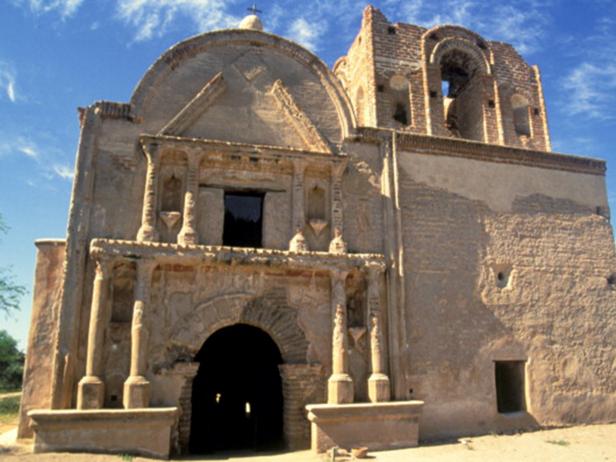
Education Images
The oldest Jesuit mission in southern Arizona, Mission San José de Tumacácori was established on the east bank of the Santa Cruz River in 1691 by padre Eusebio Francisco Kino. Learn more about this National Historical Park >>
Tuzigoot
National Monument, Clarkdale, AZ
This three-story pueblo ruin perched atop a limestone and sandstone ridge in Clarkdale, Arizona was built by the Sinagua peoples around 1000 A.D. and consists of 110 rooms. Fun fact: Tuzigoot is an Apache term for "crooked water" and refers to a nearby bend in the Verde River. Learn more about Tuzigoot's rich history >>
Walnut Canyon
National Monument, Flagstaff, AZ
While visiting nearby Tuzigoot or Montezuma's Castle, plan a quick trip to Walnut Canyon where you can explore the remnants of ancient Sinagua cliff dwellings on a self-led hike along the Rim or Island trails. Discover how these ancient civilizations thrived >>
Wupatki
National Monument, Flagstaff, AZ
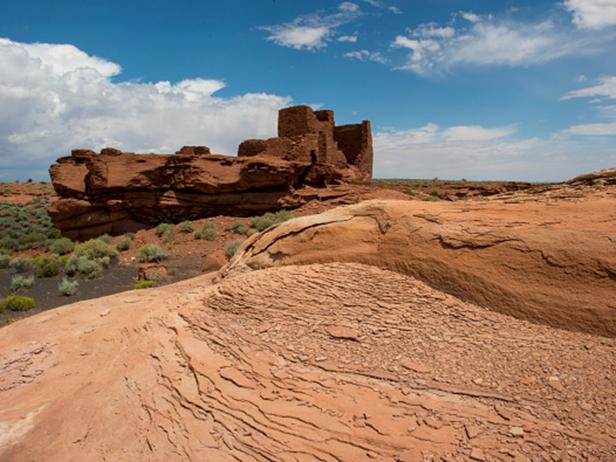
Wolfgang Kaehler
The main feature of the 35,000-acre Wupatki National Monument is the ancient Wupatki Pueblo, a Sinagua dwelling comprised of over 100 rooms, a ball court and a community room. Interestingly, the first rangers assigned to the park in the 1930s actually lived in modified rooms within the pueblo. Learn more >>
Yuma Crossing
National Heritage Area, Yuma, AZ
Although the first European explorers arrived here in 1540 and gold-seeking pioneers traversed the area in the 1840s, this narrow section of the Colorado River originally served the needs of the native Patayan and Quechan tribes for hundreds of years. While visiting this National Heritage Area, you can stroll the paved paths of two riverfront parks, learn about the history of the area at the new interpretive plaza and enjoy all that historic downtown Yuma has to offer. Plan your trip to Yuma Crossing >>
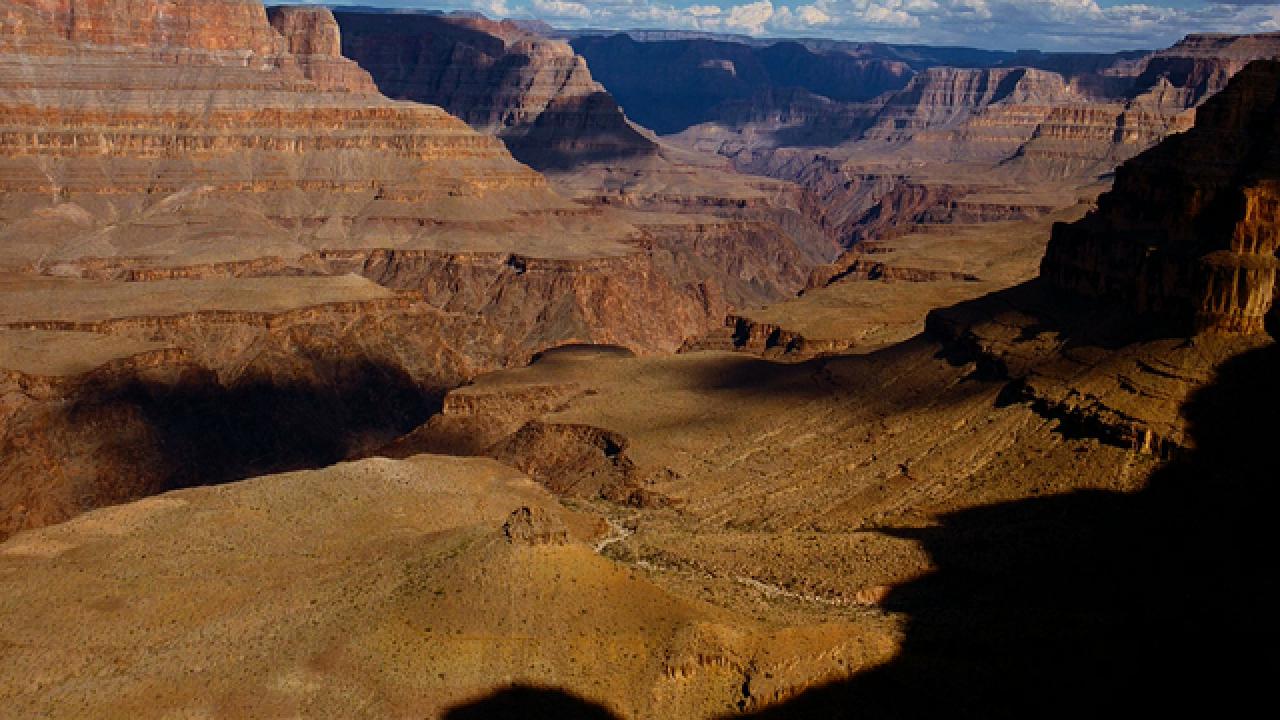

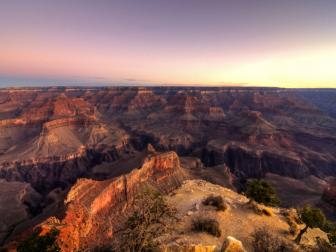

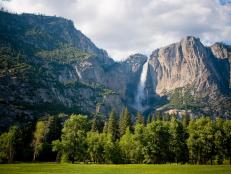

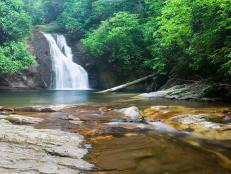
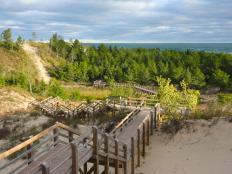
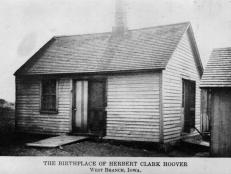
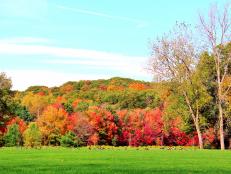
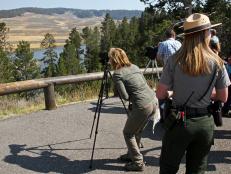
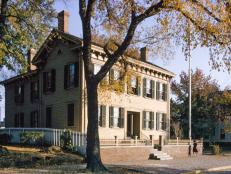
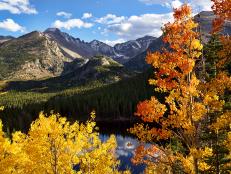




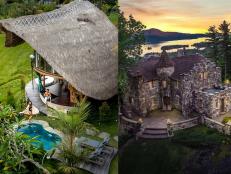


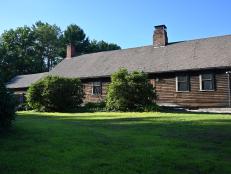
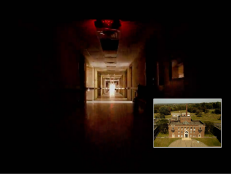

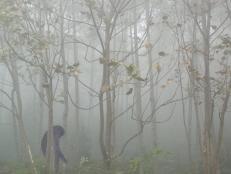
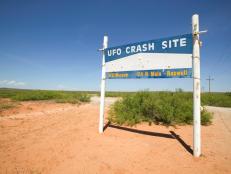





.jpg.rend.hgtvcom.231.174.suffix/1674758726773.jpeg)








